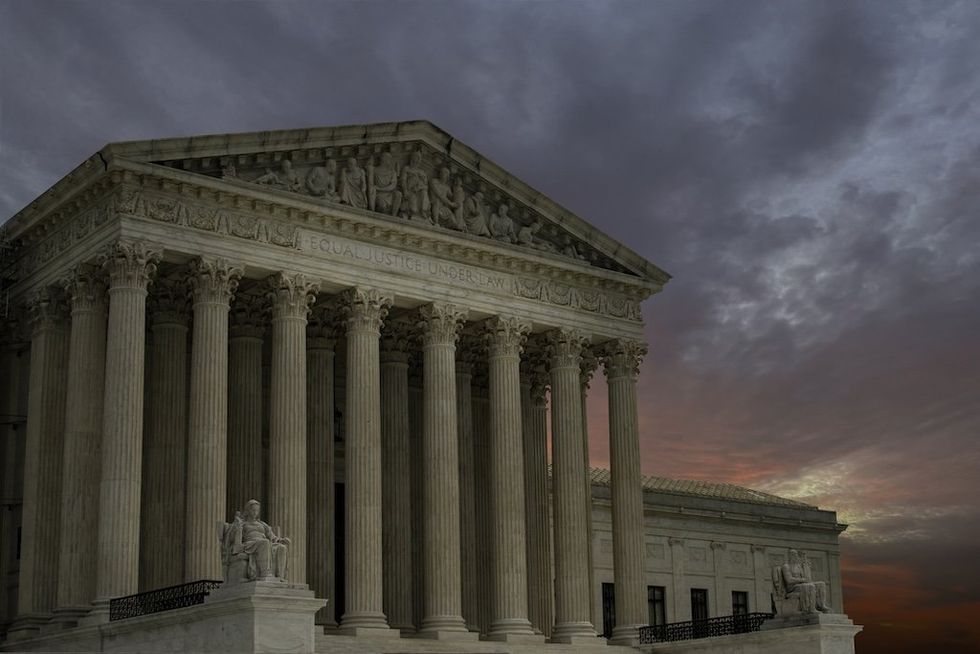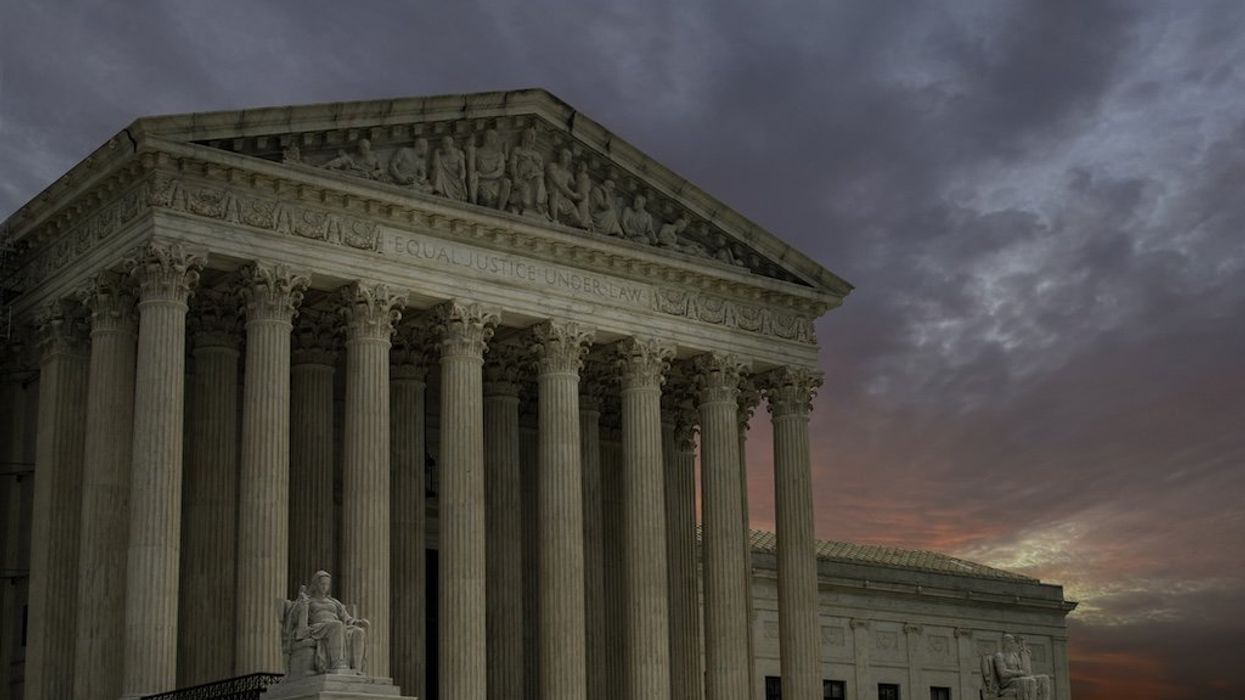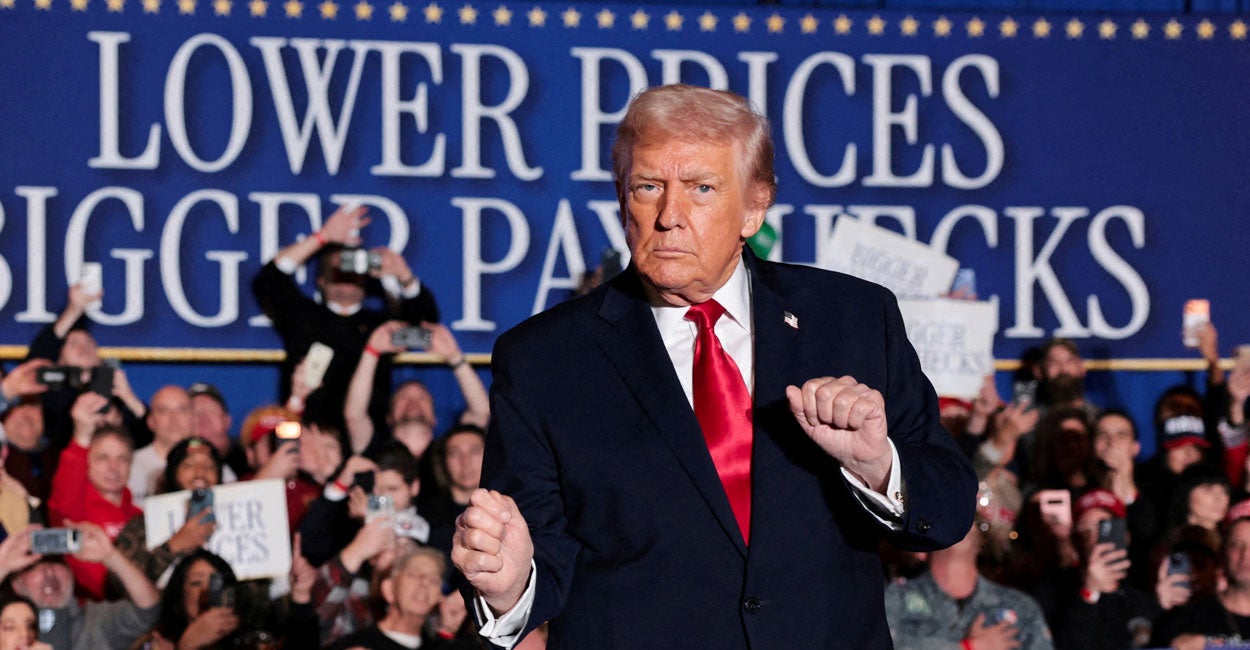How the Supreme Court can shut off the left’s migrant-to-school pipeline


The National Education Association, America’s largest teachers' union, held its annual convention earlier this month. The union’s resolutions — leaked to me by a union member — had nothing to do with improving education. Instead, the NEA declared war on the Trump administration.
Live Your Best Retirement
Fun • Funds • Fitness • Freedom
One resolution committed the union to “defend birthright citizenship,” and another one to “support students’ right to organize against ICE raids and deportations.” Yet another declared support for “the mass democratic movement against Trump’s authoritarianism” and “the Los Angeles-based movement to defeat Trump’s attempt to use federal forces against the state of California and other states and communities.”
Forcing taxpayers to fund education for illegal immigrants undermines the rule of law and creates perverse incentives for further illegal immigration.
These resolutions confirm yet again that teachers’ unions are more invested in political activism than in prioritizing education.
In fact, NEA President Becky Pringle is an at-large member of the Democratic National Committee. Such actions expose teachers’ unions for what they really are: little more than an arm of the Democratic Party, pushing a radical agenda that puts taxpayers on the hook for funding the K-12 education of illegal immigrants.
With a conservative-leaning Supreme Court and growing public support for immigration enforcement, the time has come to revisit Plyler v. Doe, the 1982 ruling that forced states to provide free public education to children regardless of their immigration status. Reversing that decision would restore basic fairness for taxpayers and bring education policy back in line with the will of the American people.
The post-Plyler disaster
The court decided Plyler v. Doe on a narrow 5-4 vote, reflecting deep division even at the time. Today’s court, reshaped by President Trump’s appointments, has a stronger constitutional foundation to strike it down. The legal terrain has shifted. The original ruling was shaky then and looks even weaker now.
Legally, the case for overturning Plyler is strong. Conservative scholars argue that the 43-year-old ruling overstepped federal authority by compelling states to allocate resources for individuals who are not lawfully present. States have a sovereign right to prioritize their citizens and legal residents when allocating finite resources.
Meanwhile, conservative legal scholars argue that the Equal Protection Clause of the 14th Amendment — used to justify the decision — does not require states to educate those in the country unlawfully. That clause was written to protect citizens and lawful residents, not to extend taxpayer-funded benefits to those who violate immigration law.
RELATED: School censorship backfires in costly free speech beatdown
 z_wei via iStock/Getty Images
z_wei via iStock/Getty Images
Forcing taxpayers to foot the bill for illegal immigrants’ education undermines the rule of law and encourages more unlawful entry. Public sentiment aligns with this view. A June CBS News/YouGov survey found that 54% of Americans support President Trump’s deportation efforts, a stance that helped propel him back to the White House last year. A June InsiderAdvantage poll found that 59% of Americans — including 89% of Republicans — support Trump’s decision “to deploy National Guard and federal military in downtown Los Angeles.”
A 2013 Phi Delta Kappa International/Gallup poll revealed that 55% of Americans oppose using taxpayer dollars to fund education for children of illegal immigrants, with a staggering 81% of Republican voters in agreement. (Perhaps that’s why Gallup hasn’t asked the question again.)
Taxpayers bear the cost, but teachers’ unions reap the rewards.
Public school funding is tied to enrollment. More students — regardless of legal status — mean more money for school districts. Illegal immigrant students often qualify as English language learners, which brings in even more per-pupil funding through federal and state grants.
The surge in English learners creates a demand for specialized teachers. Hiring more staff means more union members — and more dues. The unions grow stronger and richer with every new student who requires extra services.
So when teachers’ unions protest immigration enforcement or attack Trump administration policies, they aren’t defending children. They’re protecting their bottom line. It’s all about the cash, not compassion. They’ve prioritized financial and political power over the interests of American citizens and legal residents, and they expect you to keep paying for it.
Two ways forward
Two strategies could pave the way to overturn Plyler v. Doe.
First, states like Texas, Oklahoma, and Tennessee are expanding school choice programs that exclude illegal immigrants from taxpayer-funded benefits such as private school scholarships and education savings accounts. These programs give parents greater control over their children’s education, but unions have launched aggressive campaigns to block them.
If unions sue to stop these programs on the grounds that they violate Plyler, they’ll likely lose. The ruling required states to provide free public education to illegal immigrants. It said nothing about private scholarships or alternative funding streams.
That legal distinction matters. The court’s conservative majority could uphold these state programs and clarify that Plyler doesn’t apply outside the public school system. Such a decision wouldn’t just protect school choice — it could also erode the Plyler precedent and clear a path to overturn it entirely.
That would return power to the states and allow elected leaders — not unelected judges — to decide how taxpayer dollars are spent.
The second way involves red-state lawmakers taking direct aim at Plyler.
Republican legislators in states like Tennessee have introduced bills to block taxpayer funding for the K-12 education of illegal immigrants. Tennessee recently put its bill on hold while seeking federal guidance on whether the move would jeopardize broader education funding.
If teachers’ unions sue to stop these laws, they risk a high-stakes loss.
A legal defeat could weaken Plyler and give states new authority to draw clear lines around who qualifies for taxpayer-funded education. One ruling could reshape national policy — and force a long-overdue debate about who pays, who benefits, and who decides.
The National Education Association’s unhinged resolutions reflect a desperate push to preserve a broken status quo. Its opposition to border enforcement isn’t about students — it’s about protecting funding, growing membership, and consolidating power. The Supreme Court should revisit Plyler v. Doe and reaffirm a basic principle: Taxpayer resources must serve those who respect the rule of law.
Originally Published at Daily Wire, Daily Signal, or The Blaze
What's Your Reaction?
 Like
0
Like
0
 Dislike
0
Dislike
0
 Love
0
Love
0
 Funny
0
Funny
0
 Angry
0
Angry
0
 Sad
0
Sad
0
 Wow
0
Wow
0












































































